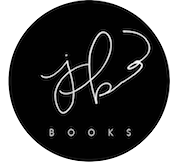This is the #3 in a fifteen post series, entitled "15 Days to Writerly Awesome in 2015,"
posting on Sunday, Monday, Wednesday and Friday of January.
Friday's here, and we've made it to the third post in the quest for Writerly Awesomeness. So far, you've learned how to schedule your writing time and how to be your own critic. Today, we're talking about our readers, because aren't they so pretty? (P.S. I just spent the last twenty minutes blog-stalking my potential readers. I love them already.)
When you're writing your story, who do you picture reading it beside you? Not literally beside you, because that would be weird, so let's think metaphorically. Is your reader a girl or a boy? Does she/he like ponies or scuba diving or political activeness? Which of your characters is this person rooting for? Your ideal reader is a representation of your audience, and serves as a tool for your writing. Here's how to find your ideal reader:
Why You Should Visualize Your Ideal Reader
I'm a people-pleaser. For me, I want everyone to love what I write, like me as a person and have an overall good impression of everything I do. Is this possible? Absolutely not and that's okay. Without an ideal reader in mind, you're left trying to please everyone, and that's unrealistic. Ideal readers are your cheerleaders. They're the ones that read all of your blog posts, wait anxiously for your next tweet and will read your receipts if you let them. (Tip: don't let them read your receipts.)
For my blog, my ideal reader is in fact, a reader; although, most of my posts are geared towards writers. I try to make my posts approachable and fun, so that they'll appeal towards non-writers as well. Informative and entertaining: that's my goal. For my book's ideal reader, you can read the second post in this series. Try writing a list of qualities your ideal reader might possess. What about your writing appeals to him/her?
How to Find Your Ideal Reader
Be specific. Know what your reader will like about your work, and what they won't. An ideal reader can be a constructed idea as well as an actual person. Let's say your ideal reader is your mother. Maybe you think she's ideal because she's going to love your writing no matter what because she's your mom and you're just so awesome. Wrong. Here's a better example: my mother is my ideal reader because she likes romances, but not harlequin, historical novels. She doesn't like cheesy one-liners, so she'll call me out if she sees them in my writing.
See?
Your ideal writer isn't someone who is going to praise your every waking thought. Your ideal reader is supportive, but also constructive. A cheerleader, but also that guy on the sidelines who makes all of the plays and gets really mad when they fail. (A coach? A what?) I digress.
When it comes to finding your perfect reader, you need to imagine someone who shares the vision of your story, but also has his/her opinions. Experiment with multiple readers, but be wary of casting too many. Let your friends read your book, and see who provides you with the best feedback.
DISCUSSION TIME: Who is your ideal reader? Do you find this as an effective tool in the writing process?



